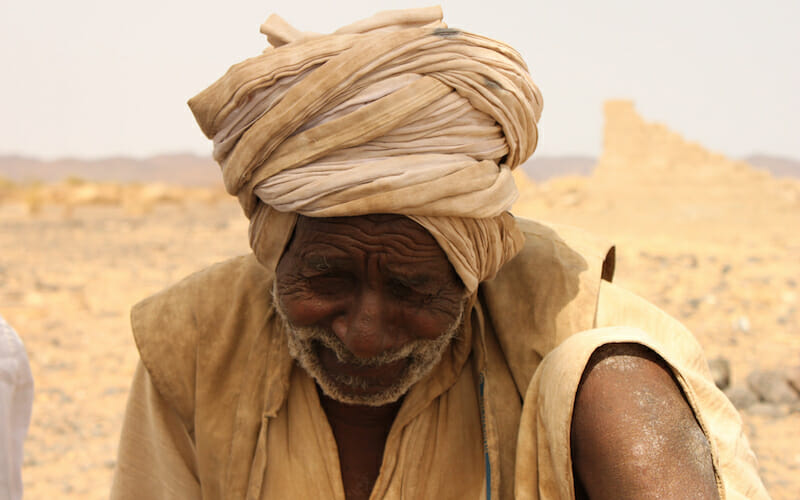
The Race to the Red Sea: Key Agendas, High Stakes
The Red Sea is one of the world’s most important trading routes that provides nations with a vital link to Asia, Africa, the Middle East, and Europe. Everything from oil, food, and naval vessels pass through it, and countries including Saudi Arabia, Israel, Jordan, Yemen, Egypt, and Sudan all border the Red Sea. But in recent years, several states have increased their presence in the Red Sea with the latest being Turkey. President Recep Tayyip Erdogan recently traveled to Sudan to sign $650 million deals with Sudanese leader Omar Al-Bashir. This gives Turkey an effective foothold in this increasingly important and competitive waterway. Part of the deal sees Turkey rebuilding the Sudanese port on Suakin Island, which was once controlled by the Ottoman Empire, but has been abandoned over the past century. Turkey also plans to build a dock there which can be used by civilian and naval vessels. President Erdogan reiterated that the point of all of this is to develop tourism and create a transit point for pilgrims crossing the Red Sea to Mecca.
Sudan says that the deal with Turkey does not harm the security of Arab countries, but some are skeptical. Suakin Island will give Turkey direct access to the Red Sea, but a broader look of the region reveals the concerns. Saudi Arabia lies directly on the Red Sea with a large coastline that docks naval vessels in Jeddah, Yanbu, Jazan, and Dhiba. The United Arab Emirates has also set up numerous ports along the horn of Africa, and Egypt has the largest fleet in the Middle East/North Africa region with four bases on the Red Sea alone. The complicating part of this picture are the external actors with either bases or a security control presence in the region which include the United States, China, the United Kingdom, and Russia.
Since the AK Party rose to power in 2002, Turkey always envisioned a presence in the Red Sea. The Turkey-Sudan deal provides a blueprint for achieving this objective which encompasses building security capacity in Sudan for joint cooperation as well as building Sudanese military efforts. A second objective is to build an economic hub for trade, and promote business ties in Sudan. Lastly this will provide humanitarian assistance for post-reconstruction efforts across the sea in Yemen, where the war has no end. .
Ankara’s cooperation with the Sudanese Government on security, economic, and humanitarian issues is quite a significant development. Over the last few years, the Red Sea has grown in importance and has become more militarized. China opened its first overseas base in Djibouti and there have also been reports of port development in Assab, the Eritrean port which has harbored many foreign powers. This is significant because from the European point of view, a vast amount of trade from Europe to Asia runs through the Red Sea from the Suez Canal into the Bab-Al-Mandeb strait. This has always been a key consideration because trade has not been disrupted by the various conflicts in the area, especially the ongoing conflict in Yemen.
The media in Egypt was very critical of the deal between Turkey and Sudan and there is some sense of skepticism that this bilateral deal could strain relations between Turkey on one hand, and Saudi Arabia, along with the United Arab Emirates and Egypt on the other. Turkey took the side of Qatar in the GCC Crisis, and setup a military base there as well. This new Turkish base in Sudan could raise some anxiety from the Saudis and the Emiratis. Currently, Turkey has three military bases: one in Qatar where Ankara might increase its troop deployment to 3,000 by 2018, the second is in Sudan, and another in Somalia where Turkey has been providing military education and training with the Somalis on joint exercises and counter-terrorism cooperation. Since the beginning of the GCC Crisis, the Saudi-led bloc was against Turkey for taking the side of Qatar and in the Eastern Mediterranean, there is a growing geo-economic rivalry between Turkey and the Greece-Cyprus-Israel-Egypt bloc for hydrocarbon reserves. As a result, Ankara has felt the pressure to expand its global influence to look for alternatives, assert leverage, and diffuse tensions in the region. The Turkey-Sudan bilateral deal hopes to increase cooperation on military and economic levels that can lead to a strengthening of relations between the two countries.
Over the last few months, Egypt handed its sovereignty of two islands on the Red Sea (Sanafir and Tiran) to Saudi Arabia. In addition, Riyadh has also planned on building a mega-city on the Red Sea as a part of the Vision 2030 plan. The UAE continues to prop up its bases on the horn of Africa, and now the Turks are stepping into the region as well. These particular developments won’t raise the tension, even though it is high, but the main concern is in terms of maritime security and the war in Yemen. There have already been some attacks on shipping vessels by both the Saudi-led coalition and the Houthi rebels, and should desperation set in, certainly if there should be an attack on the port of Al-Hudaydah anytime soon, we can expect more violence to continue.
The main priority for the countries that border the Red Sea is to stop the conflict in Yemen, which is the world’s worst humanitarian catastrophe, and the best way to resolve it is to pave a political path forward for the Middle East’s poorest country. The European Union would like to see the United Nations play a more active role in the conflict and for the EU to launch its Operation Atalanta initiative, which was originally setup to fight piracy and protect fishing areas for civilian vessels. In addition, the countries with an interest in the Red Sea region should come together to improve the regional coordination between the different military, commercial, and security services to create a more stable picture going forward because the Red Sea is a vital freeway which will continue to be competitive for the next decade.
Many global powers have a keen interest in the Red Sea because of its geo-strategic importance, oil shipping routes, and it gives major players stakes in major issues across the Middle East. For China, the route for oil and gas shipping goes through the Strait of Hormuz, but the Red Sea is vitally important for not only trade with the European Union, which totals around 700 billion Euros a year, but European countries that are not a part of the EU as well. China does have a strong interest in doing all it can to project more stability to the region, and the experience of the EU to deal with the Chinese has been positive, especially on economic issues like trade, and security issues like piracy. At the moment, there is no effort to improve international coordination over management of the Red Sea, but hopefully more countries can move in the direction of contributing to capacity building on this particular issue.
The duck that is at the head of the row to make the Red Sea one of the safest places in the world for international cooperation is the conflict in Yemen. Surely, if we can see more effort from regional players to pave a path towards a political solution in Yemen, then perhaps this could be a starter for better coordination in the wider region. Apparently, we are not there yet, and at the moment, the conflict in Yemen is going through a worrying period. The ongoing suffering of the Yemeni people is something we all feel as being one of the worst humanitarian catastrophes in the world today, but this has to be the main issue for the global community right now, and better coordination between the parties of the conflict in Yemen can work towards a better future into the new year.
